An Oopsidental Moment
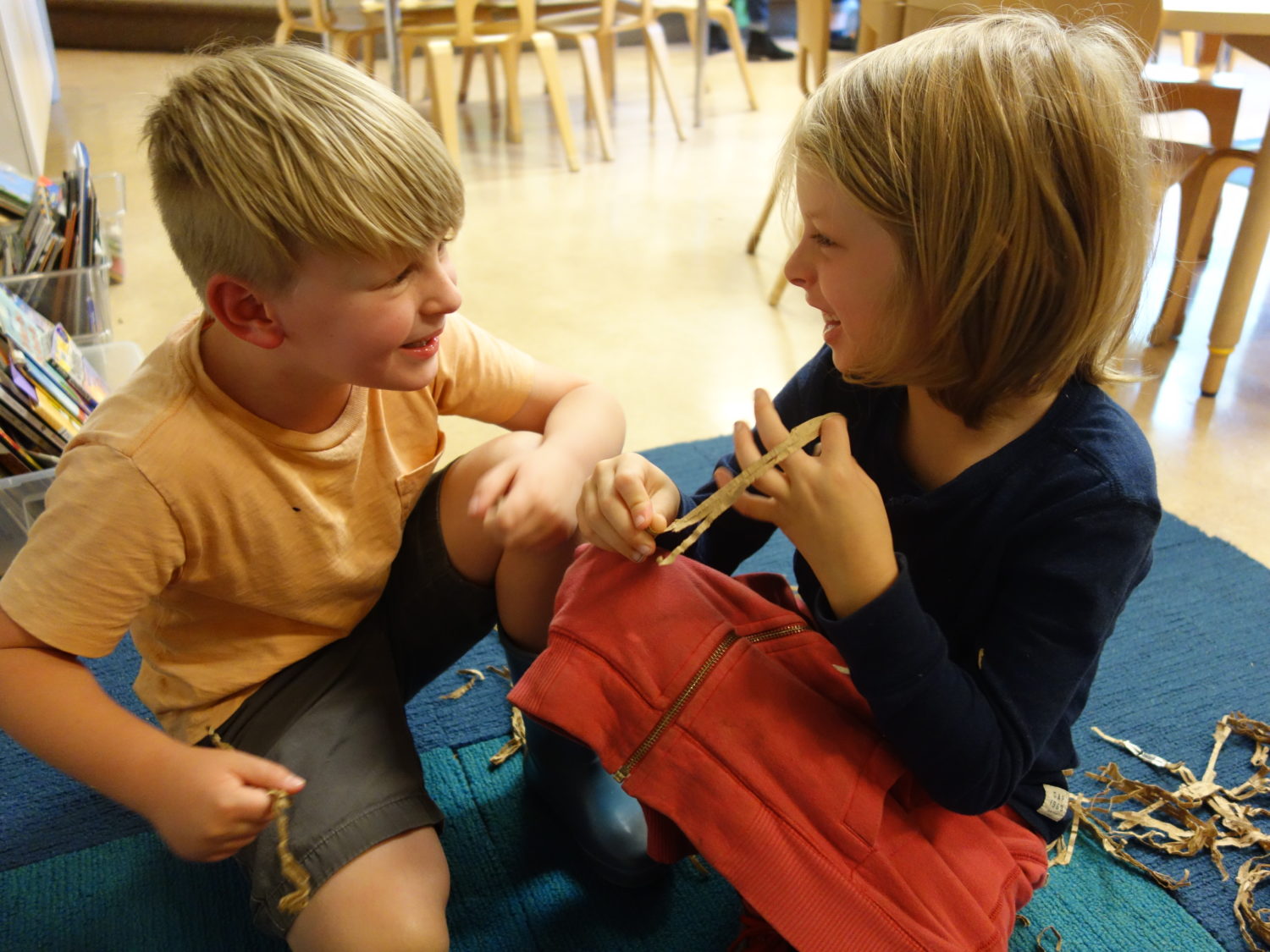
Right now, as teachers, we are working to find ways to explore the intentions we set at the beginning of the year in a way that builds upon what this particular group of children already know and what they are interested in and curious about. This is a delicate dance that Loris Malaguzzi has referred to as, “a game of ball toss.” He wrote,
“We must be able to catch the ball that the children throw us, and toss it back to them in ways that make the children want to continue the game with us, developing, perhaps, other games as we go along.”
In this game of ball toss we are seeking connections to our intentions—making observations, listening closely, asking our own questions, noticing what the children are paying attention to, and wondering what we can bring back to them.
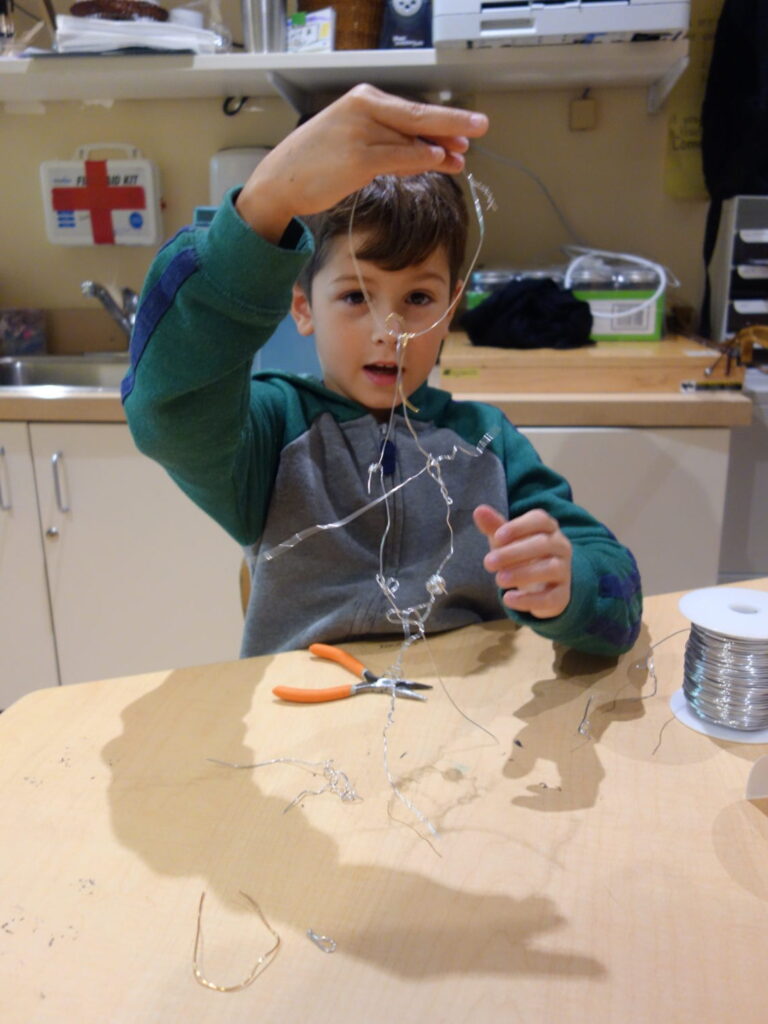
Within this group of children, we began to notice a pattern of experiences in which multiple encounters with unexpected moments inspired or piqued the curiosity of the children.
One example that reflects this pattern we’ve been noticing began a few weeks ago when we were exploring liquid watercolor as a class.
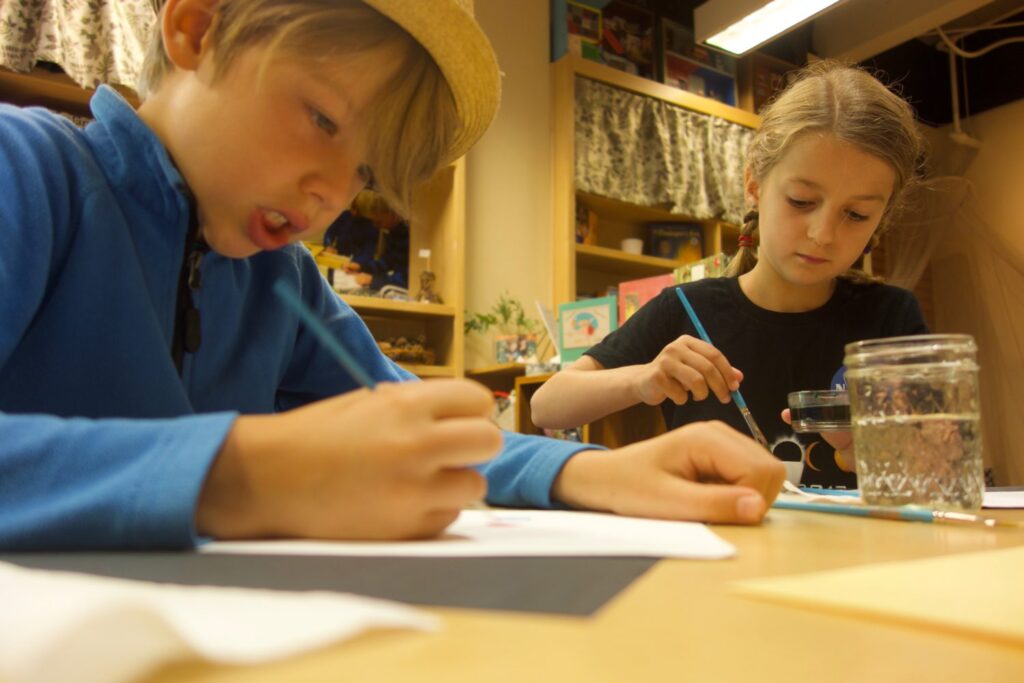
Aleeza was busy mixing the paints and labeling a palette of colors on her paper. Suddenly a big drop of paint came splashing right onto her paper. As this unexpected drop bled into her paper, Aleeza had a choice to make. She could have decided to throw that paper away and start a new one, revisiting her original intention. Instead, Aleeza saw potential in this accident. What seemed to others to be just a mistake was a moment of inspiration for Aleeza for creating a story of the big splotch.
“I got sort of mad at Ali, but then I looked closer at the splotch and some great ideas shot into my head!”
– Aleeza, The Big Splotch
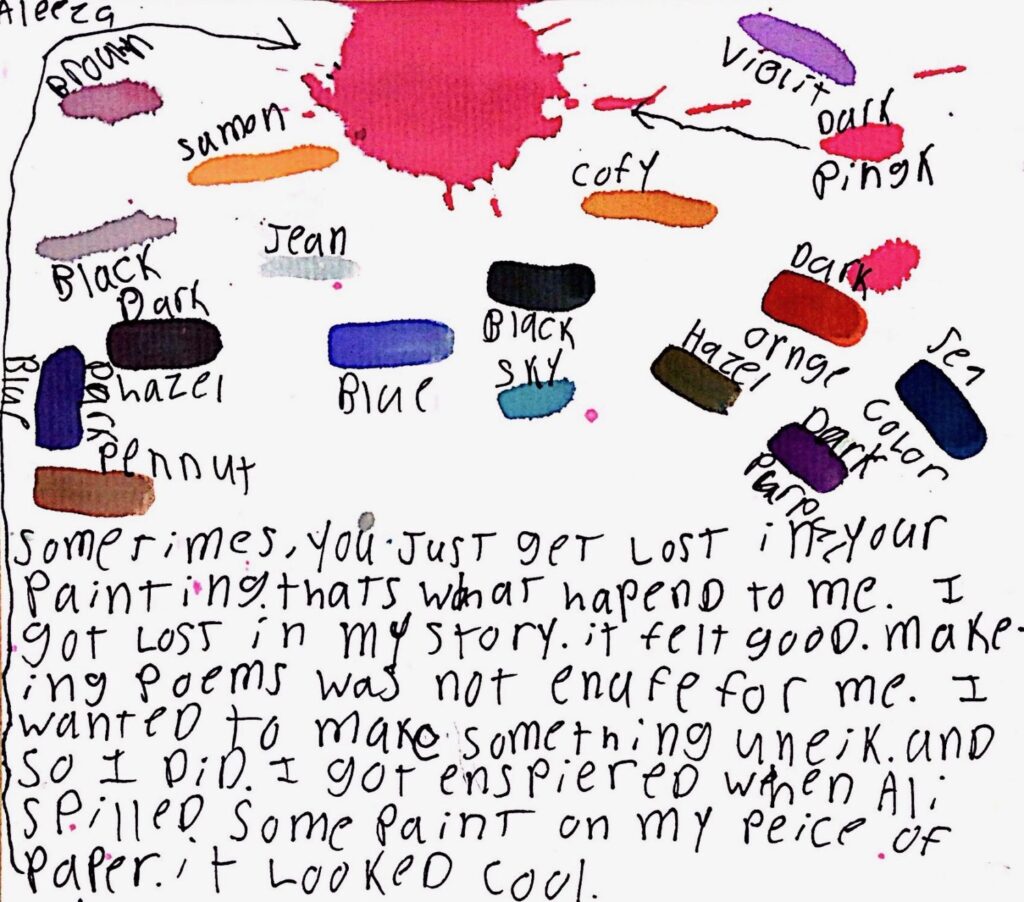
Through my observations of these patterns, I had the ball and was ready to toss it back to the class. I brought this story along with a few other examples of when I had observed these moments to the children. I asked them, What should we name these moments that keep showing up?
Ali: The Stumbler
Kavi: Stidea. Like stumbling on an idea.
Ellie: The firework moment. Like when a firework explodes and creates all these little sparks that are like the ideas that come from it.
Aleeza: An oopsidental moment
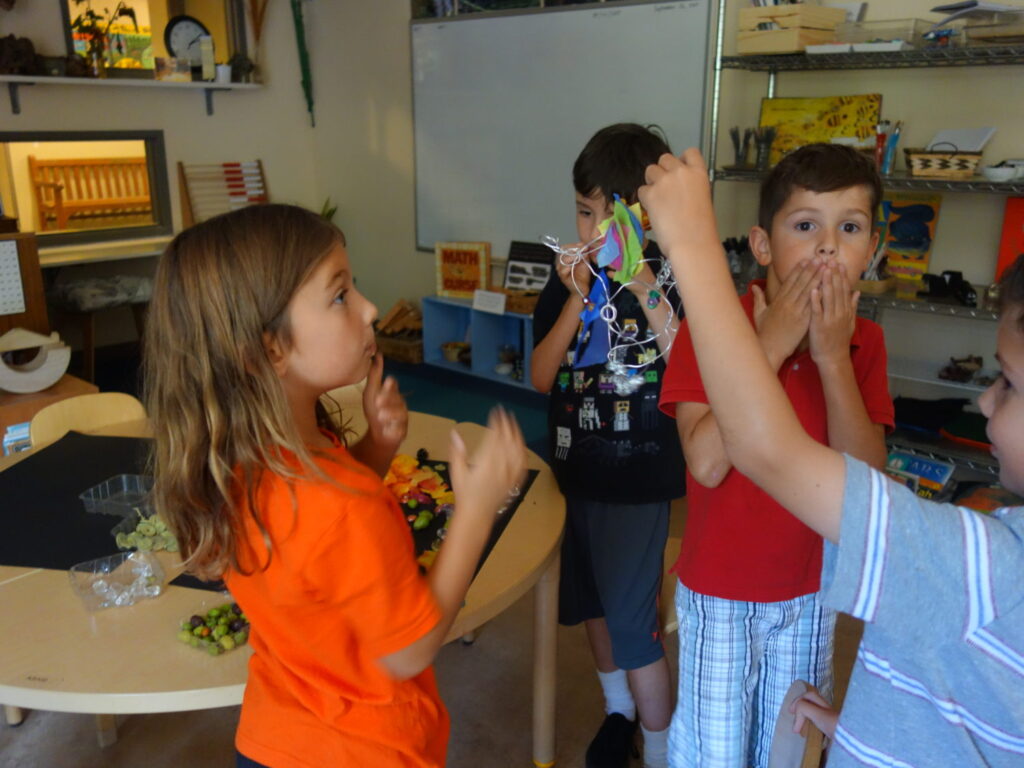
I then asked the children to pay attention or notice any accidents or unexpected moments they might stumble upon. Meanwhile, I began to grow more curious about the conditions or personal characteristics that support the awareness of encountering unexpected moments and using them to propel an idea. I talked to some of my colleagues about this idea and found out there is a name for this encounter with the unexpected – serendipity. One of the teachers shared a newspaper article called, “How to Cultivate the Art of Serendipity.”
In the next Explore, I read part of this article to the class.
Heather: The teachers have been thinking more about the stideas, stumblers, fireworks, and oopsidental moments that you have been talking about… and Nicole sent me this article from The New York Times.
In 2008, an inventor named Steve Hollinger lobbed a digital camera across his studio toward a pile of pillows. “I wasn’t trying to make an invention,” he said. “I was just playing.” As his camera flew, it recorded what most of us would call a bad photo. But when Mr. Hollinger peered at that blurry image, he saw new possibilities. Soon, he was building a throwable videocamera in the shape of a baseball, equipped with gyroscopes and sensors. The Squito (as he named it) could be rolled into a crawlspace or thrown across a river — providing a record of the world from all kinds of “nonhuman” perspectives.
Heather: How do you think this article connects to what we’ve been thinking about and exploring in Dogwood?
Sydney: When he made the mess up, other people would say it wasn’t a good picture. He turned it into something that it could be. Kind of like the splotch Aleeza had on her paper, she turned it into what could be.
Nolan: I think when he threw the camera he was just playing but then when he looked closer at the photo, he would have never made it if he hadn’t thrown the camera across the room. Once he looked at the picture and he really looked closer and discovered what was new about that.
Aleeza: He didn’t really know what he was doing, but actually he was like wow, this photo is the coolest thing I could have made.
Sydney: If he hadn’t had thrown the camera he would have never even known this thing could exist. If he had never done this he could have actually could have gotten a different idea, like a flying camera.
Ellie: The accidental oopsie.
Heather: Has anyone ever experienced that? Where you were playing around and you didn’t mean to make something but you did because you were open to the possibility?
August: I have a connection because when I was at home my mom said do you want to write and I said yeah and I grabbed my pen and just let my pen go wherever it wanted and it looked like a three-eyed monster and it actually looked really cool.
Jack: Well I was painting at my house. I don’t know what to paint. When I first started I was like I don’t know what it is, but when I looked closer it looked like a world, an earth with people on it, but I didn’t realize it at first.
Heather: Today at Explore, start by playing but pay attention: “Is there something I encounter that I didn’t plan? Something unexpected?” You’ll have time to write what you discover at the end of explore.
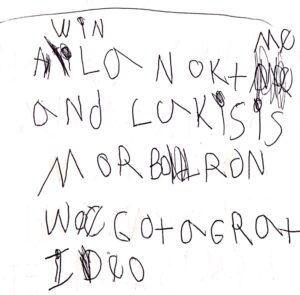
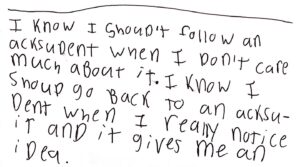
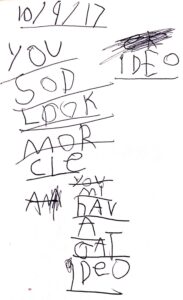
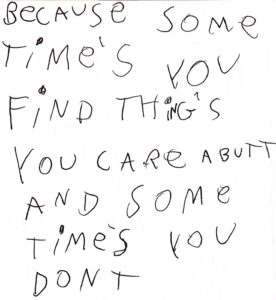
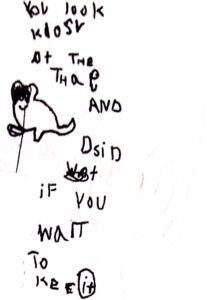
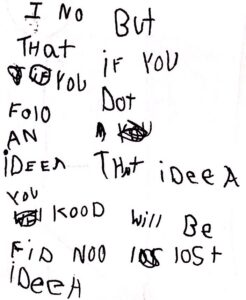
Once again, the children have tossed the ball back to me. As I observe what they are exploring, listen to what they are saying, and read what they are writing, I’m curious about how these ideas relate to our intentions for the year and how to support building new understanding of these experiences together.
Some things I am currently wondering are:
- What materials might invite opportunities to stumble into the unknown? Should we look closer to find something surprising in familiar materials? What might happen if we offer unfamiliar materials?
- What mindsets or dispositions support people to become more likely to encounter these types of moments and see them as possibilities to propel their thinking? Can this be practiced? How?
- Why do we care about oopsidental moments? Why is this an idea the world needs? Will paying attention to these moments fill a need? Create something new? Help us to explore new questions?
- How might paying attention to these moments have an impact on ourselves, each other, or other people outside of our community?
- If you can find serendipitous moments in materials, can you also do that with other people? With ideas?
What oopsidental moments are you finding? How are you becoming more adept at cultivating the art of serendipity?

Thanks Heather! That was so great. I’m going to challenge myself this week to consider where I might find moments of inspiration in mistakes.